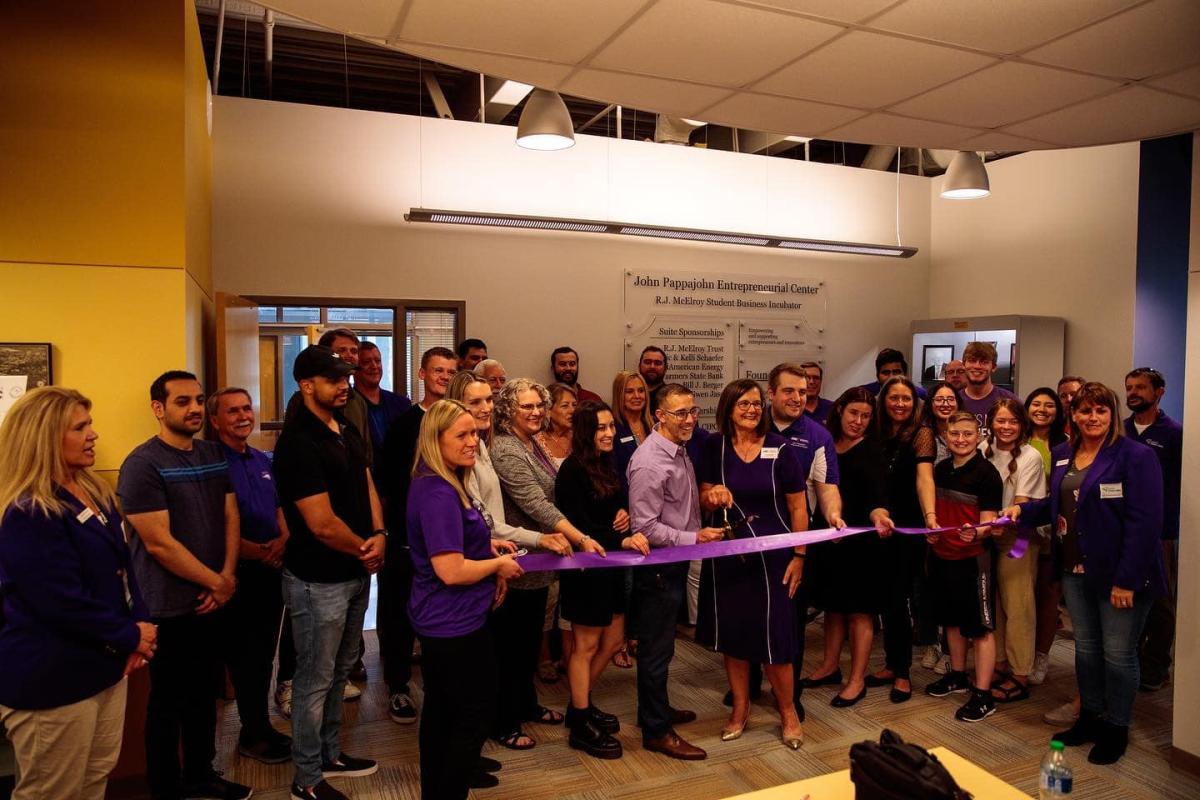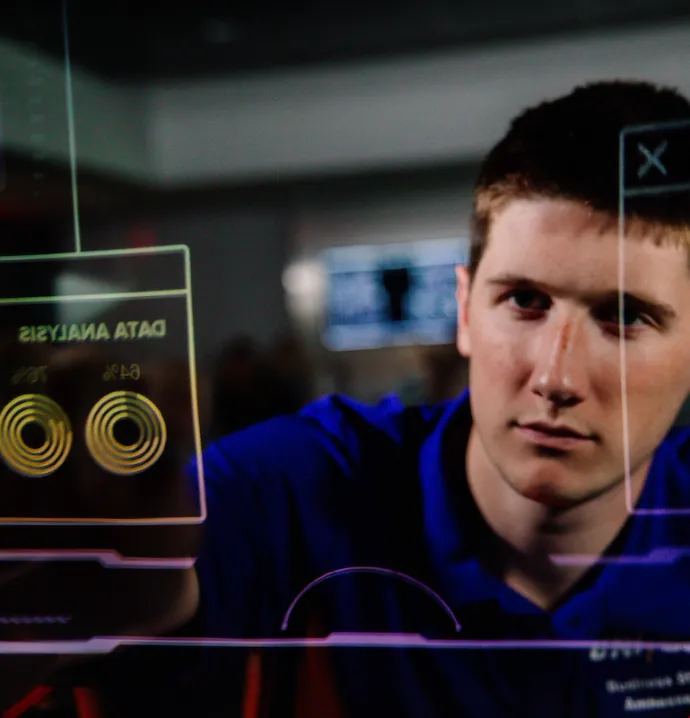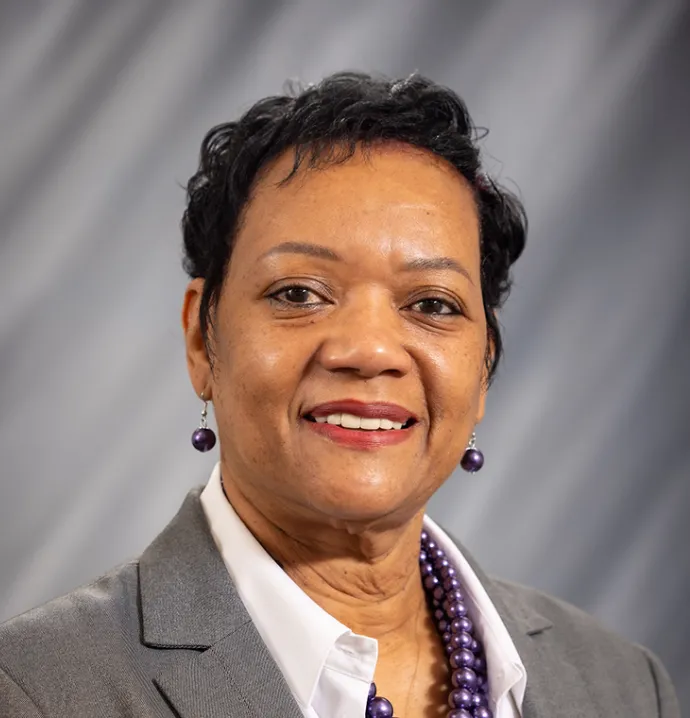UNI JPEC reorganization provides more space for student entrepreneurs to build businesses
UNI JPEC reorganization provides more space for student entrepreneurs to build businesses

On June 7, the University of Northern Iowa John Pappajohn Entrepreneurial Center (JPEC) held an open house to celebrate being fully moved into their new space on the first floor of the Business & Community Services (BCS) building. For many years prior to the move, the JPEC was housed on the second floor of BCS.
The UNI JPEC, which is one of five such centers in the state, is all about empowering entrepreneurs, both on campus and in the community. The larger updated space in BCS suite 13 will help the center provide services more effectively and to a greater number of people. With the addition of IASourceLink and the Small Business Development Center, the JPEC now serves not only UNI student entrepreneurs but also small business owners and community entrepreneurs across Iowa.
“We really wanted the students to have a space that they can own and feel it’s theirs,” said JPEC Director Laurie Watje. “The thing we were missing upstairs was the opportunity for big collaboration, which is what we have now.”
This collaborative space, unofficially referred to as the Innovation Lounge, can host up to 60 people while giving them access to whiteboards and monitors to explore their entrepreneurial ideas.
Another benefit of moving from the second floor to the first floor is the close proximity to JPEC’s classroom where students take classes to complete a minor or certificate in entrepreneurship. This helps bridge the gap between the JPEC’s academic program and its other services. As students walk to class, they pass the R.J. McElroy Student Business Incubator, and they can see the businesses their peers are building. The Incubator program serves approximately 50 student businesses each year, and provides two more incubator spaces than the previous space.
One of the many ways the JPEC will be utilizing its new space is with the summer Early Founders Program (EFP), a program it has hosted since 2019 that helps student entrepreneurs build their business models while they earn a $4,000 stipend.
“I think the most important lesson from EFP is being able to identify who your customer is and really hear their voice,” Watje explained.
Over eight weeks, students will also get the chance to attend two conferences — one in Iowa City and another in Okoboji — free of charge. When they’re not at conferences, the student founders participate in educational meetings and pitch workshops. They also have time to work on their businesses. Students who complete the Early Founders Program also get preference for having an office in the R.J. McElroy Student Business Incubator.
There are six students enrolled in EFP this summer. One of these students is sophomore real estate and finance major Reyna Jorgenson who is using the Early Founders Program to work on her clothing business Recreated by Rey. Her business is built on the concept of transforming thrifted clothing items into new styles.
“I’m trying to alleviate the textile waste, which is a huge issue right now,” she said.
Jorgenson got involved with the JPEC during the spring 2022 semester after hearing about it in a UNI Class of 2025 group chat. She has loved the support she’s gotten from everyone at the JPEC and the fact that she’s been pushed outside of her comfort zone.
At first, she was considering a summer internship instead of participating in EFP, but after hearing enough about the program, she ultimately decided the Early Founders Program was the best option.
“Really what made me want to do EFP is knowing that I’m still going to get that experience of stepping outside of my comfort zone,” she said. “It feels like an internship but for growing your own business.”
Jorgenson said she is looking forward to learning how to scale her business, which has already shipped orders to 48 states and Canada.
“I have really high demand with my customers right now,” she said. “Although I'm marketing a lot and bringing a lot of people to my page, I just don't have the resources to produce enough inventory.”
One of Jorgenson’s EFP peers this summer is Fatima Rodriguez, a junior majoring in management information systems and marketing with a certificate in Spanish studies. She got the idea for her business Saffron&Ivy during a trip to Mexico where she saw indigenous-owned pop-up shops selling handmade jewelry. While these items may be common in Mexico, Rodriguez hadn’t seen anything like them in the U.S. market. She decided she would build a business around helping products from these types of indigenous-owned shops get into the U.S. and then return proceeds to the families who created the products.
Not only does the business bring a unique product to American consumers, but it also helps provide a more stable income for Mexico’s indigenous population, many of whom live in poverty.
“I think it is a great opportunity to help the business owners financially because most of these families rely on the income that they make from these pop-up stands,” Rodriguez explained. “I could help people, bring something unique to the U.S. and be fulfilled by doing this. There were no reasons to not pursue this idea.”
This will be Rodriguez’s second time going through EFP, as she participated in the shorter version of the program during winter break. Because of the support system it provided from her fellow entrepreneurs and the accountability, she decided to go through the longer program.
Rodriguez started getting experience in business at an early age as she helped her immigrant father with his construction business.
“My dad didn't know where to get help when he started his business, especially since he wasn’t confident in his English, so I was pulled into the business,” she explained. “I helped with the accounting in the business, translated documents and even recently typed up official documents for him.”
During her freshman year, Rodriguez quickly got involved with UNI Entrepreneurs Club, which gave her the inspiration to start her own business. Now, Rodriguez is focused on adding more structure to her business. While she admits there have been challenges, she said, “deconstructing my business idea helps validate it.”
Even if some EFP students determine their business model won’t work, Watje believes they still walk away from the experience with valuable skills.
“We always say there are two ways to win,” Watje said. “The first is to come up with a sustainable and repeatable revenue model. The second way to win is to find out there isn't a sustainable, repeatable business model. So the student isn’t moving forward with their business, but at the same time, they're learning those steps they need to take.”




